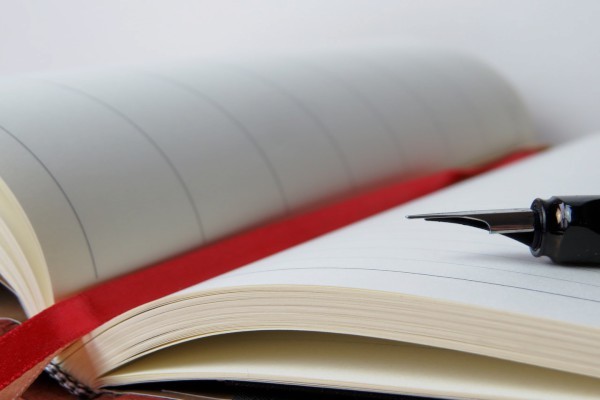[导语]what的用法总结多篇精品多篇为好范文网的会员投稿推荐,但愿对你的学习工作带来帮助。

分钟学会:what和which用法区别 篇一
What vs Which
what和which有何不同?
Hello again, everyone. Tom here for BBC Learning English. Today, I'm going to explain the difference between what and which in questions.
大家好,我是汤姆,又见面了。今天,我们来学习疑问句中的what和which有什么不同。
What is used to ask a question which has a lot of possible answers.
what用于表示有很多种潜在答案的疑问句中。
Consider the question:
想想这个问题:
What do you want to eat for lunch?
你中午想吃什么?
Here, there are no choices to limit your reply. You could choose anything you want.
看吧,这个问题的答案是没有限制的,你可以回答任意想吃的东西。
We use which when we have options to choose from.
which用于选择性疑问句中。
So, here we have two choices- a sandwich and a melon.
那么我们有两个选择——一个三明治和一个甜瓜。
So I can say:
我可以说:
Which do you want to eat? The sandwich or the melon?
三明治和甜瓜,你想吃哪个?
Now, next time you need to ask a question, you'll know which word to use. What for anything and which when you have a choice.
现在,大家都知道用哪个词去问问题了吧。有多种答案用what,选择性疑问用which。
what在英语中的某些特殊用法 篇二
what在英语中是个很常用的词。我们知道它能用作疑问词,引导特殊疑问句,在句中做主语﹑表语或宾语;又能用作连接代词(或复合关系代词),引导主语从句﹑表语从句或宾语从句;还能用作疑问形容词,只作定语并可表示感叹。对于这些常规的用法本文就不一一赘述,现就what在高中英语中的某些特殊用法归纳如下:
1、what = just as,意为“恰像,犹如,好比”用作连词,引导比较状语从句。(见新编高二英语上册p.21)
⑴惯用句式是:A is to B what C is to D. 意为“A对B而言正如C对D一样”例如:
① Air is to us What water is to fish. 空气对于我们犹如水对于鱼。(介词to 表示两者的关系)
⑵也有“A is for B what C is for D.”句式。例如:
② Poultry is for the cook what canvas is for the paint. 厨师离不了家禽正如画家离不开画布一样。(介词for表示“供…使用”)
⑶ what 引导的从句也可以放在句首,其句式是: What C is toD,that A is to B.(= A is to Bwhat C is to D.)
在这一结构中,喻体在前,主体在后,相当于“just as…,so…”结构,意思也是“A对B而言正如C对D一样”例如:
What bloodvessel is to a man's body,that railwayis to transportation.(=Just asblood vessel is to a man's body ,soRailway is to transportation.)
铁路对于运输,好比血管对于人体一样。
2、what 与do with连用,意为“(怎样)处理﹑安排或对付等”。what常有较灵活的翻译,常用结构是:“what …do with sth./sb.?”或“what to do with sth./sb.” 例如:
① What will you do with the letter?你将把那封信怎样处理?
② The kids do not know what to do with themselves on rainy days.
孩子们不知道雨天干什么好。
注意:do with 与deal with同义,但搭配不同:do with只能与what搭配,而deal with可与不同的疑问词搭配。比较:
③ How will you deal with the letter?你将那封信怎样处理?
④ You may have some idea of what the astronauts have to deal with if youtry to drink a glass of water while standing on your head or while just lyingdown.
如果你试着倒立着或仅以躺着的姿势去喝水,就能大致体会得到宇航员必须应付什么了。
3、问价格﹑度量﹑速度、人口﹑面积﹑门牌(汽车﹑电话等)号码等时,只能用what提问,不能用how much提问。例如:
① What is the cost(price)of the gold watch?这块金表多少钱?
② What is the speed of the car?车速是多少?
③ What is the length(width﹑depth)of the lake?这湖有多长(宽、深)?
④ What is the population(area)of China?中国的人口(面积)有多少(大)?
⑤ What money(cash) have you got?你有多少钱(现金)?
⑥ What is your telephone (car、room)number?
你的电话(汽车﹑房间)号码是多少?
4、“What is …like?”的两种含义。
⑴表示“情况怎样”,多指天气或气候。例如:
① What is the weather like today?今天天气怎样?
② What is the climate like there?那里的气候怎样?
⑵表示“像什么样,什么模样,怎样的” 指人或事物。例如:
③ What is the camel like ?骆驼是什么样子的?
④ — What is your teacher like?— She is verykind and beautiful.
“你老师是怎样一个人?”——“她既善良又美丽。”
⑤ What will life be like in the future ?未来的生活是什么样子呢?
注意:“What is…like?”通常用于对某人、某地和某物的实际情况提问,包括对其内在的品质或外在的特征(或持久的特征)提问。而“How is …like?”是就某人、某地和某物的外观询问对方的看法,可以用来询问变化的事物,如暂时的情况,情绪等,还常用来问候别人的健康。如:
⑥ How is your work these days?近来你的工作情况如何?
⑦ How is he?他近况如何? (他身体近来怎么样?)
比较:What does shelook like?她是什么模样?(What… looklike?只能指外表)
5、“What do you think of…?”用于询问对方对……的看法或评价。例如:
① What do you think of the idea?你认为这个主意怎样?
② What did you think of that film?你对那场电影评价如何?
注意:“ What do you think of…?”是惯用搭配,不能改为“How do youthink of…?”。但我们可以说:How do you feel about the idea(that film)?或者How do youlike the idea(that film)?
6.what 用作复合关系代词时,既可指代人又可指代物。例如:
① China is no longer what it used to be?中国已不是过去的中国
② She is what you call a “bluestocking”。她就是你说的“女才子”。
③ She is not what she was five years ago. 她不再是5年前的她了。
7、what从句可用作宾语补足语或状语。例如:
① We will make the factory twice what it is today. 我们将使工厂比现在规模增加一倍。(句中的twice what it is today是动词make的宾语the factory的补足语)
② Gravity is what makes you weigh what you weigh. 地心吸引力使人称得现有的重量(句中的第一个what到句末为表语从句;句末的what you weigh 是说明前面的动词weigh,系回答how much 的问题,作状语)
8、像how和why一样,what可以用作名词。例如:
① Please explain to us how and why,since youknow what. 既然你想出一个好办法,请给我们解释清楚解决这个问题的方法和理由。
② By asking why,how and whatif,curious minds find new ideas and solutions.
通过刨根问底,提出假设,富有求知欲的天才人物想出了新主意,找出了解决问题的新办法。(见新版高二英语上册p.7,what if 可译为:假设)
9、与what连用的常用句型和词组
⑴ What if…?What will orwould happen if…?如果(假如)…将会怎么样?例如:
① What if it is true?如果这是真的又怎么样?
② What if a storm should come up?万一发生暴风雨怎么办?
⑵ what with:because of ;as a result of;因为;由于……的结果;例如:
③ What with overwork and (what with)so little sleep,she fell ill.
一半由于工作过度的劳累,一半由于睡眠不足,她病倒了。
④ She has been depressed,what withlosing her job and having to move.
她由于丢了工作还要搬家而感到沮丧。
⑶ and what not :and so on ;etc;以及各种其它东西;诸如此类;等等;例如:
⑤ I bought sugar,tea,eggs,and what not.我买了食糖、茶叶、鸡蛋之类的东西。
⑷ come what will(may)是固定搭配必须倒装,意为“不管发生什么事”“不管怎样”
⑥ Come what will (may),I will always stand by you.
不管发生什么事,我将永远支持你。
语法学习:which, what与who的用法 篇三
1、which 和 what 均可与名词连用。
选择范围较小或比较明确时,用which;
选择范围较大或不明确时用what。
如:
Which is bigger, the sun or the earth?
太阳和地球哪个大?
What writers do you like?
你喜欢哪些作家?
2、who 一般只用来指人。
如:
Who won—you or he?
谁赢了?你还是他?
Who is your favourite teacher?
你最喜欢的老师是谁?
3、由于 what 和 who 的选择范围很大,其后可以跟else,但一般不跟表示特定范围的 of 短语;which 的选择范围相对比较小或明确,其后不接else,常 与of 连用。
如:
Which of the three boys is the oldest?
这三个男孩中哪个年纪最大?
不过,以上说的也是一般情况,有时也有例外,如有时也说:
Who of you three first thought of this?
你们三人中谁最先想到这一点?
what的用法总结大全 篇四
what的意思
pron. (用以询问某人或某事物的词)什么,多少,…的事物
adj. …的(事物或人)
adv. (用于感叹句中)
int. (用以表示不相信或惊奇),(用以表示未听清楚对方说的话)
what用法
what可以用作代词
what用作疑问代词时,其基本意思是“什么,什么东西,什么事情”,用作疑问句,为特殊疑问句的一个标志。
what作关系代词时,其含意是“所…的事(物)”。可用来引导主语从句,表语从句,宾语从句或同位语从句。当引导主语从句,其所指的名词必定是单数。主语是单数时,谓语动词一般是单数,但有时因谓语动词之后有复数名词,谓语动词也可用复数; what引导宾语从句时,常置于谓语之后,用作表语时,放在系动词之后。what还可引导让步状语从句,意思是“不管…”。还可接动词不定式短语。
what有时候可解释为whatever,表示“不管怎么样”。I gave him what help I could. 我给他任何我能给的帮助。
what用作代词的用法例句
What are you having for dinner?你晚饭吃什么?
She is not what she was a few years ago.她已经不是几年前的她了。
What color is your dress?你的衣服是什么颜色?
what用法例句
1、For what do we live, but to make sport for our neighbours, and laugh at them in our turn?
我们活着是为了什么?不就是给邻居当笑柄,再反过来笑他们。
2、Instead of complaining about what's wrong, be grateful for what's right.
别抱怨不好的事,要对好的事心存感恩。
3、A fellow doesn't last long on what he has done. He's got to keep on delivering as he goes along.--Carl Hubbell, Baseball Player
靠过去完成的无法让人保有成功,必须在路上持续交出成绩。
你也可以在好范文网搜索更多本站小编为你整理的其他what的用法总结多篇精品多篇范文。

 该篇DOC格式what的用法总结多篇精品多篇范文,共有6275个字。好范文网为全国范文类知名网站,下载本文稍作修改便可使用,即刻完成写稿任务。立即下载:
该篇DOC格式what的用法总结多篇精品多篇范文,共有6275个字。好范文网为全国范文类知名网站,下载本文稍作修改便可使用,即刻完成写稿任务。立即下载: 
